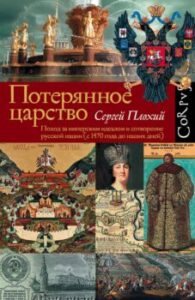Описание книги
About the product It happens that a nation creates an empire, it happens that an empire creates a nation. In the case of Russia, everything is, as always, very confusing. Serhiy Plokhiy, professor of Ukrainian history at Harvard University and one of the main specialists in the history of Eastern Europe, explores the issue of the emergence and development of Russian national identity and its intersections with imperial consciousness. The idea that Russia has a «special path» of historical development has almost become that the state ideology, but still, like centuries ago, politicians, philosophers, writers and religious leaders are trying to comprehend what exactly this path is. And most importantly, who should follow them, who makes up the so-called Russian nation? Russians living within and outside the Russian Federation? Or maybe all the Eastern Slavs, including Belarusians and Ukrainians? Or maybe this is the entire Russian-speaking population of the Earth? Each era has tried to find its own answers to these questions. The Russian Empire, the Soviet Union, post-Soviet Russia: Sergei Plokhiy explores in detail how the national identity changed throughout the history of these states, what it consisted of and how desperately sought to return back to the lost paradise, during the times of Kievan Rus. Annotation On November 12, 1472, the Grand Duke of Moscow Ivan III, who entered Russian historiography as a «gatherer of the Russian land», married Sophia Palaeologus, the niece of Constantine XI, the last Byzantine emperor who died during the capture of Constantinople by the Turks. So the young state will declare its incredible ambitions — to turn into an Empire and become the legal successor of Byzantium. Throughout the subsequent history of politics, religious leaders and philosophers will be looking for what the «Russian nation» is and what is the vector of its path. In his book, Sergei Plokhiy examines the history of Russia from the point of view of the emergence and development of national identity and the search for ways to return the Kiev state, that very «lost kingdom». In this search, the rulers never spared money, time, or people. This search continues to this day. …
FAQ
